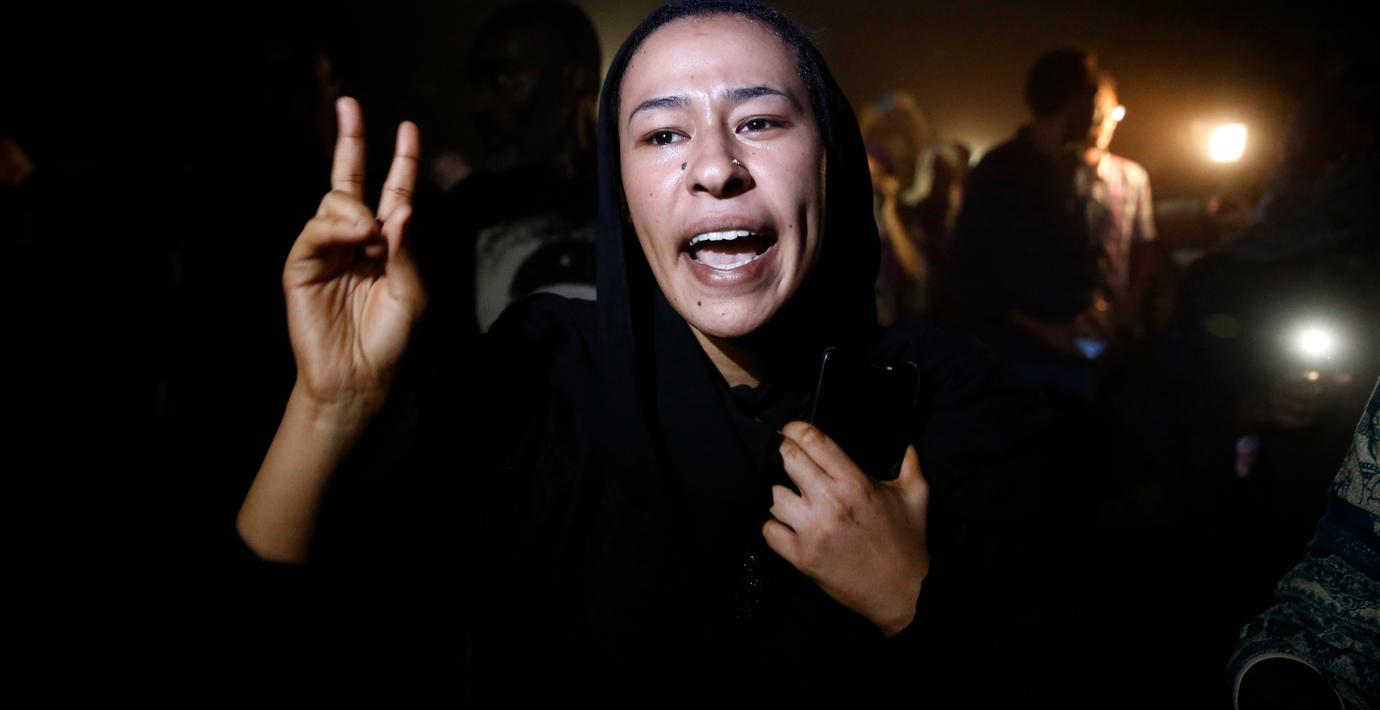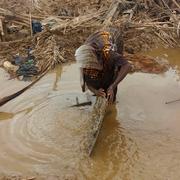
Könsstympning av flickor och kvinnor förbjuds i Sudan
Sudan har kriminaliserat kvinnlig könsstympning, uppger regeringen i ett uttalande enligt flera medier.
Den nya regeringen, som tog över efter att Omar al-Bashir störtats efter 30 år vid makten, skriver att åtgärden är ett bevis för att landet är fast beslutet att underordna sig avtal om mänskliga rättigheter.
Enligt data från FN har omkring 90 procent av kvinnor och flickor i Sudan utsatts för könsstympning.
bakgrund
Kvinnlig könsstympning
Wikipedia (en)
Female genital mutilation (FGM), also known as female genital cutting and female circumcision, is the ritual cutting or removal of some or all of the external female genitalia. The practice is found in Africa, Asia and the Middle East, and within communities from countries in which FGM is common. UNICEF estimated in 2016 that 200 million women living today in 30 countries—27 African countries, Indonesia, Iraqi Kurdistan and Yemen—have undergone the procedures.Typically carried out by a traditional circumciser using a blade, FGM is conducted from days after birth to puberty and beyond. In half of the countries for which national figures are available, most girls are cut before the age of five. Procedures differ according to the country or ethnic group. They include removal of the clitoral hood and clitoral glans; removal of the inner labia; and removal of the inner and outer labia and closure of the vulva. In this last procedure, known as infibulation, a small hole is left for the passage of urine and menstrual fluid; the vagina is opened for intercourse and opened further for childbirth.The practice is rooted in gender inequality, attempts to control women's sexuality, and ideas about purity, modesty and beauty. It is usually initiated and carried out by women, who see it as a source of honour and fear that failing to have their daughters and granddaughters cut will expose the girls to social exclusion. Adverse health effects depend on the type of procedure; they can include recurrent infections, difficulty urinating and passing menstrual flow, chronic pain, the development of cysts, an inability to get pregnant, complications during childbirth, and fatal bleeding. There are no known health benefits.There have been international efforts since the 1970s to persuade practitioners to abandon FGM, and it has been outlawed or restricted in most of the countries in which it occurs, although the laws are poorly enforced. Since 2010, the United Nations has called upon healthcare providers to stop performing all forms of the procedure, including reinfibulation after childbirth and symbolic "nicking" of the clitoral hood. The opposition to the practice is not without its critics, particularly among anthropologists, who have raised difficult questions about cultural relativism and the universality of human rights.
Sudan
Omni är politiskt obundna och oberoende. Vi strävar efter att ge fler perspektiv på nyheterna. Har du frågor eller synpunkter kring vår rapportering? Kontakta redaktionen



